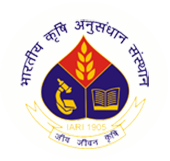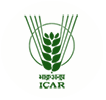 |
भा.कृ.अ.प. - भारतीय कृषि अनुसंधान संस्थान | ICAR-Indian Agricultural Research Institute |
 |
Weather Based Agromet
Advisory Bulletin
Gramin Krishi Mausam Sewa
(Applicable for Delhi and NCR)
Division of Agricultural Physics
ICAR-Indian Agricultural Research Institute
PUSA, New Delhi – 110 012
www.iari.res.in (Weather Advisory)
Year 32, No: - 91/2025-26/Tue. Time: 2.30 PM Date- 10th February, 2026 Weather during current week (From 04th February to 10th February, 2026) Slight foggy weather conditions were observed during the week. Maximum temperature ranged between 21.8°C and 25.0°C (weekly normal 22.1°C). Minimum temperature ranged between 6.5°C and 9.1°C (weekly normal 7.9°C). Relative humidity at 7.21 AM ranged between 93 and 100 percent and that at 2.21 PM ranged between 44 and 78 percent. The average bright sunshine hour during the week was 7.4 hours per day (weekly normal 5.8 hours). The average wind speed recorded was 3.7 km/h (normal 3.7 km/h). Mean evaporation rate during the period was 2.3 mm/day (weekly normal 2.7 mm/day). Wind during morning was Calm and evening it was from different directions.
| Weather parameter/Date | 2026-02-11 | 2026-02-12 | 2026-02-13 | 2026-02-14 | 2026-02-15 |
|---|---|---|---|---|---|
| Rainfall (mm) | 0.0 | 0.0 | 0.0 | 0.0 | 0.0 |
| Maximum Temperature (°C) | 25 | 24 | 24 | 25 | 25 |
| Minimum Temperature (°C) | 11 | 10 | 10 | 10 | 12 |
| Average Cloud Cover (Okta) | 3 | 4 | 4 | 4 | 3 |
| Maximum RH. (%) | 78 | 75 | 72 | 78 | 75 |
| Minimum RH. (%) | 72 | 65 | 65 | 75 | 75 |
| Average Wind Speed (kmph) | 05 | 10 | 10 | 05 | 05 |
| Predominant Wind directions | ESE | NNE | NNW | NNW | NNW |
| Cumulative Weekly Rainfall (mm) | |||||
| Special weather | |||||
Weather based Agromet-Advisories (for the period ending on 15th February, 2026) Advisory based on advices received from the subject matter specialists of agromet-advisory committee: Members of Agro advisory Committee Dr. Ananta Vashisth (Nodal Officer, Agricultural Physics) Dr. Subash Nataraja (Head, Division of Agricultural Physics) Dr. P. Krishnan (Professor, Division of Agricultural Physics) Dr. Deb Kumar Das (Principal Scientist, Agricultural Physics) Dr. Sachin Suresh Suroshe (Project coordinator, AICRP on Honeybee) Dr. Dinesh Kumar (Principal Scientist, Agronomy) Dr. A.K. Singh (Principal Scientist and Incharge, CATAT) Dr. Gograj Singh Jat (Senior Scientist, Vegetable Science) Dr. Bishnu Maya (Senior Scientist, Plant Pathology)